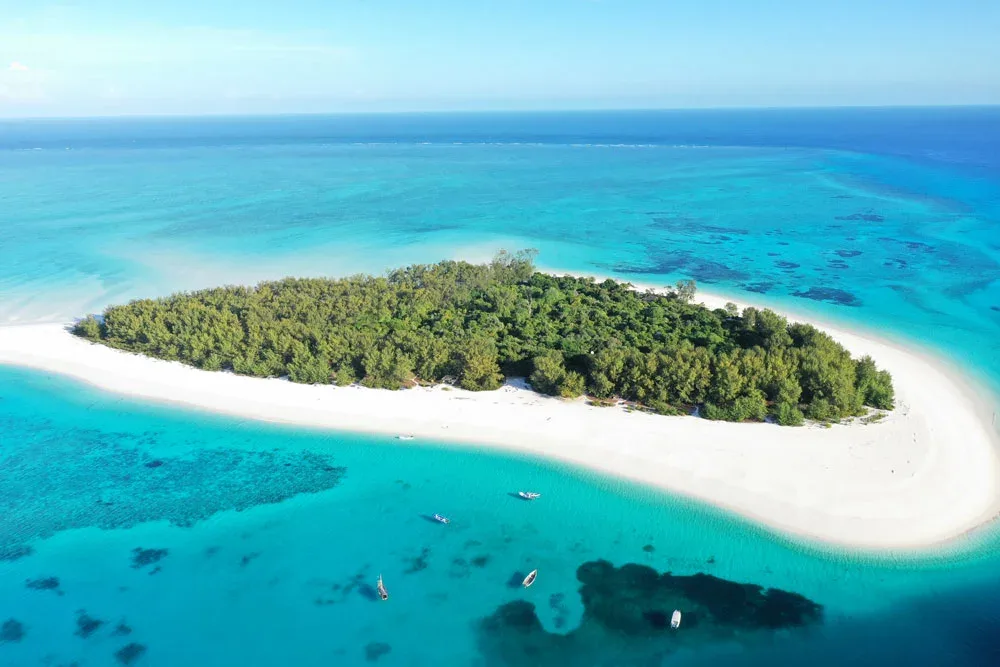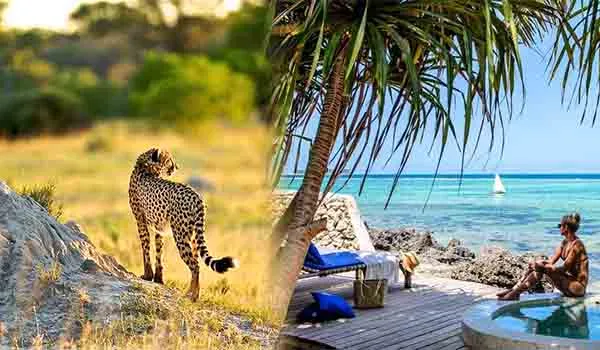Zanzibar Eco-Tourism & Sustainable Travel Guide
Planning a trip to Zanzibar with a focus on eco-tourism? With Capable Africa Tours, you can explore the island’s stunning beaches, vibrant coral reefs, and rich culture while minimizing your environmental footprint. This guide dives into sustainable travel in Zanzibar, covering eco-lodges, conservation efforts, community tourism, and practical tips to ensure your trip supports the island’s natural and cultural heritage. From snorkeling with reef-safe sunscreen to staying in eco-friendly accommodations, we’ll help you plan a responsible and unforgettable adventure.
Plan Your Eco-Friendly Adventure
Why Choose Zanzibar Eco-Tourism?
Zanzibar eco-tourism offers a unique way to experience the island’s beauty while preserving its natural and cultural treasures. By choosing sustainable travel, you support conservation efforts, empower local communities, and reduce environmental impact. Zanzibar’s coral reefs, mangrove forests, and spice plantations thrive when travelers opt for responsible tourism practices. With Capable Africa Tours, you can immerse yourself in green travel experiences, from staying in eco-lodges to joining community-led initiatives that protect the island’s ecosystems.
What is Sustainable Travel in Zanzibar?
Sustainable travel in Zanzibar means making choices that benefit the environment, local communities, and cultural heritage. This includes staying in eco-lodges that use renewable energy, supporting local artisans by purchasing handmade crafts, and participating in activities like coral reef restoration or mangrove planting. Responsible tourism in Zanzibar ensures that the island’s pristine beaches, marine life, and cultural traditions remain intact for future generations.
Top Eco-Friendly Attractions in Zanzibar
Zanzibar is a haven for eco-conscious travelers. Here are some must-visit attractions that align with sustainable travel principles:
- Chumbe Island Coral Park: A private marine sanctuary with eco-bungalows and coral reef tours that fund conservation efforts.
- Jozani-Chwaka Bay National Park: Home to the rare red colobus monkey, this park supports mangrove restoration and biodiversity projects.
- Mnemba Atoll: A protected marine reserve perfect for snorkeling and diving, with operators promoting reef-safe practices.
- Spice Plantations: Visit organic farms that support local farmers and sustainable agriculture, offering tours of cloves, vanilla, and more.
- Stone Town Cultural Tours: Explore the UNESCO World Heritage Site with community-led guides who share Swahili history and traditions.
Best Eco-Lodges in Zanzibar
Choosing eco-lodges in Zanzibar ensures your stay supports sustainability. Here are some top picks:
- Chumbe Island Coral Park: Solar-powered bungalows with rainwater harvesting and direct contributions to marine conservation.
- Fundu Lagoon: A low-impact resort in Pemba with eco-friendly design and community employment programs.
- Zanzibar White Sand Luxury Villas: Uses renewable energy and supports local environmental initiatives.
- Eco+Culture Zanzibar: A boutique lodge in Jambiani that partners with local villages for cultural and environmental projects.
These accommodations prioritize renewable energy, waste reduction, and community support, making them ideal for green travel enthusiasts.
Conservation Efforts in Zanzibar
Conservation in Zanzibar is critical to protecting its ecosystems. Key initiatives include:
- Coral Reef Restoration: Projects like those at Chumbe Island protect marine biodiversity by replanting corals and educating visitors.
- Sea Turtle Conservation: Programs in Nungwi and Mnarani Aquarium protect nesting sites and rehabilitate injured turtles.
- Mangrove Restoration: Efforts in Jozani Forest and coastal areas preserve vital mangrove ecosystems that support marine life.
- Plastic-Free Campaigns: Local organizations promote reducing single-use plastics to keep beaches and waters clean.
Travelers can contribute by joining these projects or choosing tour operators like Capable Africa Tours that prioritize conservation.
Community Tourism in Zanzibar
Community tourism in Zanzibar connects travelers with local culture while supporting livelihoods. Activities include:
- Village Homestays: Stay with families in Jambiani or Nungwi to learn about Swahili life and cuisine.
- Cooking Classes: Join locals to cook traditional dishes like pilau or coconut curries, supporting small businesses.
- Artisan Markets: Shop for handmade crafts in Stone Town, directly benefiting local artisans.
- Guided Village Tours: Explore rural areas with local guides who share insights into sustainable farming and fishing practices.
These experiences empower communities and provide authentic cultural immersion.
Practical Tips for Sustainable Travel in Zanzibar
To ensure your trip aligns with responsible tourism, follow these tips:
- Use reef-safe sunscreen to protect coral reefs during snorkeling or diving.
- Carry a reusable water bottle and avoid single-use plastics.
- Choose tour operators that support local communities and conservation efforts.
- Respect cultural norms by dressing modestly in villages and Stone Town.
- Support local businesses by dining at family-run restaurants and buying local crafts.
Best Time for Eco-Tourism in Zanzibar
The dry seasons (June–October and December–February) are ideal for eco-tourism activities like snorkeling, diving, and spice farm tours, with clear skies and calm waters. The rainy seasons (March–May and November) offer fewer crowds and lower prices but may limit outdoor activities. For cultural events, visit during the Sauti za Busara music festival (February) or Zanzibar International Film Festival (July), which often include eco-focused initiatives.
How to Get to Zanzibar Sustainably
Flying into Abeid Amani Karume International Airport (ZNZ) is the most common way to reach Zanzibar, with connections from Dar es Salaam or Nairobi. To reduce your carbon footprint, consider airlines with carbon offset programs. Alternatively, take the ferry from Dar es Salaam, a scenic and lower-impact option. Once on the island, use bicycles or electric scooters for short trips to minimize emissions.
Packing for an Eco-Friendly Zanzibar Trip
Pack light to reduce your travel footprint. Essentials include:
- Reef-safe sunscreen and biodegradable toiletries.
- Reusable water bottle and eco-friendly tote bag.
- Lightweight, breathable clothing and modest attire for cultural sites.
- Reusable snorkeling gear if you prefer not to rent.
- A solar-powered charger for electronics.
Budgeting for Sustainable Travel
Eco-friendly travel in Zanzibar can fit various budgets. Budget travelers can stay in community-run guesthouses for $20–50 per night, while eco-lodges like Chumbe Island range from $150–300. Sustainable tours, like spice farm visits or snorkeling, cost $30–100. Carry Tanzanian Shillings (TZS) for small vendors, though US dollars are accepted in eco-lodges. Always choose operators that reinvest in local communities.
Safety & Health for Eco-Travelers
Zanzibar is safe for eco-travelers, but take precautions like avoiding isolated areas at night and securing valuables. For health, use insect repellent to prevent mosquito bites, drink bottled or filtered water, and check for vaccinations like yellow fever if required. Choose eco-lodges with safe water systems and sustainable waste management.
Plan Your Eco-Friendly Zanzibar Adventure
Join Capable Africa Tours for a sustainable Zanzibar experience. From eco-lodges to conservation-focused tours, we craft itineraries that protect the island’s beauty and support local communities. Combine your trip with a Tanzania safari for an eco-conscious bush-and-beach adventure.
- Expert Guides for Sustainable Experiences
- Customizable Eco-Friendly Itineraries
- Support for Local Conservation Projects
- 95% Customer Satisfaction Rate
- Commitment to Responsible Tourism



